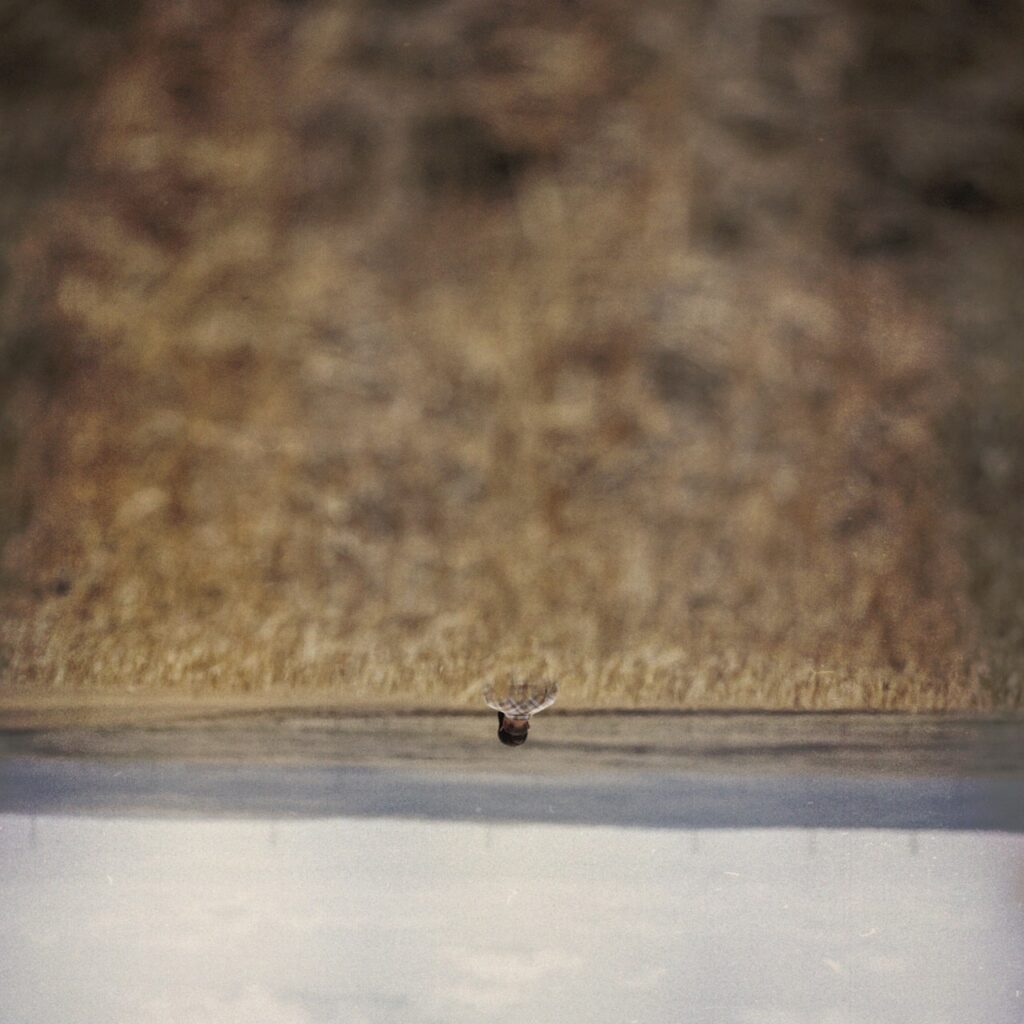In Kyle Armstrong’s Hands That Bind, horror is hiding in plain sight. The film, which premiered in 2021 and is due for theatrical release this fall, is set amid desolate Alberta farmlands—a space whose relentless flatness you might assume allows for few mysteries. Straight roads stretch endlessly toward the horizon; barns outnumber trees by a wide margin. Any approaching threat ought to be visible from miles away. But in the world of this carefully paced prairie gothic, unsettling events arrive from out of nowhere, leading to more questions than answers. Who, or what, is mutilating the farmers’ cattle? Who’s in the black sedan making ominous drive-bys? And what are those lights swirling in the sky?
The crucial question, which drives the film’s grippingly human drama as well as its more cryptic events, is philosophical in nature: whether we can ever truly be certain about anything. “My opinion isn’t going to solve anything for you, because my opinion is that I don’t know,” remarks a bartender played by a scene-stealing Will Oldham, as he turns off a Scratch Acid song on the stereo. “Certainty is the rare exception to the rules of life. Whatever’s easiest to swallow is what most folks gravitate towards. Even if you lie to yourself, as best as you can, and look for something you call true, well, whatever your theory is, it’s probably wrong.”
Jim O’Rourke’s soundtrack is perfectly calibrated to this unforgiving space squashed between parched fields and blown-out sky. His palette—detuned piano, watery vibraphone, and a muted, amorphous shimmer that might be harmonium or synthesizer—matches the film’s dusty tones of beige and pewter and mobile-home brown. A high-end fizz resembles the incessant whine of crickets; the occasional spritz of static mimics the strange electrical phenomena on screen. Closer in spirit to the longform drone works of his Steamroom series than the fingerpicked Americana of Bad Timing or the mischievous classic rock of Simple Songs, O’Rourke’s instrumental score is, much like the landscape of the film, flat, faintly menacing, and miserly with its details. (Another comparison point might be the Boxhead Ensemble’s 1997 soundtrack to the film Dutch Harbor: Where the Sea Breaks Its Back, featuring O’Rourke alongside Chicago luminaries like Ken Vandermark and Douglas McCombs.)
It begins gently enough, with a high, lonesome harmony reminiscent of a freight train’s distant whistle. An acoustic bass plucks out a tentative melody. These opening passages move with pastoral ease. But the music quickly sours, clouded with uncertainty, as dark, shapeless figures clamber up from the lower register to disturb the tranquil upper reaches. Light is one of the film’s unspoken subjects—the implacable sun beating down on sere crops, the bokeh-like orbs cutting curlicues in the night sky—and O’Rourke’s soundtrack has similarly luminous properties. He favors soft attacks that come on like a backlist mist, and streaks of dissonance that flash out and disappear, swallowed up in the dull radiance.
The 38-minute score cycles through just a handful of themes and motifs, stirring them occasionally, as though to keep them from sticking. Halfway through, with “A Man’s Mind Will Play Tricks Upon Him,” brushed cymbals and plucked bass kick up a groove beneath a chiming piano melody; it’s one of few places where the record approaches anything resembling a song. But the moment is fleeting. In the concluding “One Way or Another I’m Gone,” the drumbeat returns, but this time there’s no lightness to it. It plods sullenly as jabbing tritones, a constant throughout the album, hint at a nameless evil. The soundtrack ends as it began, hovering in a nebulous interzone, neither major nor minor—ambiguous, ambivalent, unresolved.
All products featured on Pitchfork are independently selected by our editors. However, when you buy something through our retail links, we may earn an affiliate commission.

